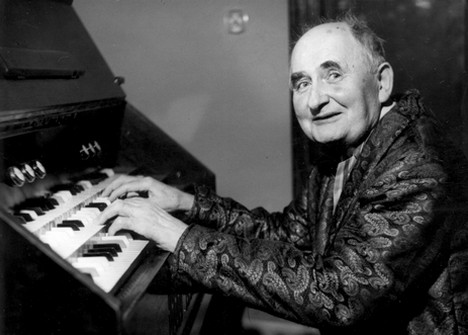It seems we can’t find what you’re looking for. Perhaps searching can help.
Alois Hába
Alois Hába (1893–1973) was a Czech composer and music theorist, notable for his experiments with microtonal music. Born on June 21, 1893, in Vizovice, Moravia, then part of the Austro-Hungarian Empire, Hába was influenced by the folk music of his native region and the broader avant-garde movement in early 20th-century music.
Hába studied at the Prague Conservatory and later in Vienna. He was particularly influenced by the atonal music of Arnold Schoenberg, but his most significant contribution to music was his exploration of quarter-tone and sixth-tone systems. These microtonal systems divide the conventional scale of Western music into smaller intervals, allowing for a greater range of pitch and expression.
Hába designed and commissioned the construction of special instruments, including quarter-tone pianos and harmoniums, to perform his compositions. His theoretical work, “The New Harmony System of the Diatonic, Chromatic, Quarter-Tone, Sixth-Tone, and Twelfth-Tone Systems,” laid out the principles of his microtonal music.
His operas, such as “The Mother” and “The New Earth,” are among the first to employ microtonality extensively. Hába’s musical language in these works is characterized by an unconventional harmonic palette and a desire to convey a deeper emotional range and more nuanced expression than he felt was possible with traditional tonality.
Beyond his compositions, Hába was also a prominent educator, teaching at the Prague Conservatory, where he founded a department for quarter-tone music. Through his teaching and his theoretical writings, he influenced a number of composers and musicians interested in microtonality.
Despite the highly experimental nature of his work, Hába’s music maintains a connection to the folk traditions of his homeland, and he often sought to integrate these melodies and rhythms into his complex harmonic structures.
Alois Hába’s dedication to exploring new musical frontiers left a mark on 20th-century music, challenging traditional notions of harmony and expanding the possibilities of musical expression. He passed away on November 18, 1973, in Prague, leaving behind a legacy as one of the most innovative composers in the realm of microtonal music. His works and theories continue to be studied and performed, serving as an inspiration to those seeking to push the boundaries of musical language.



